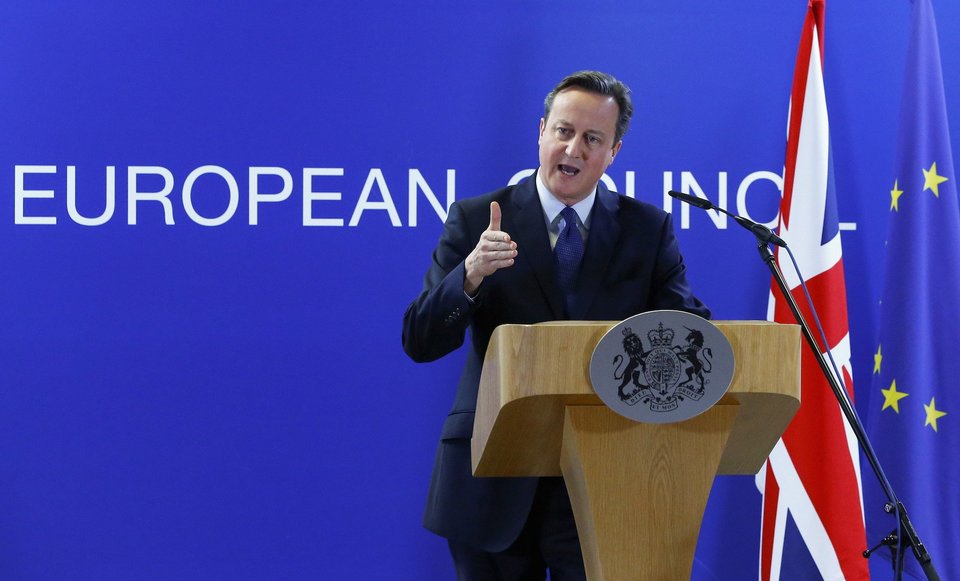
At a time of multiplying global challenges and a shift of power to the Asia-Pacific region, the United Kingdom’s decision to leave the EU is harmful to Western strategic interests as it reduces Europe’s political weight and its capacity to shape global affairs in a Post-Western World. The possibility of a Trump victory in the United States raises doubts about the stability of trans-Atlantic partnership. Equally important, the rise of “post-truth” and identity politics threatens to undermine the West’s key advantage vis-à-vis a rising China: its noisy but ultimately moderate and stability-producing democracy, its embrace of diversity and globalization, and its capacity to integrate migrants from all over the world.
———
Catastrophes are rarely one man’s work alone, and Brexit will go down in history as the result of a remarkable combination of errors committed by several political leaders in London. Their mistakes will echo far beyond Great Britain, prolonging the internal crisis that keeps Europe from facing far broader questions of global importance. A Brexit-inspired recession would also significantly affect the rest of the continent, possibly boosting anti-EU sentiment.
Inspired by Brexit, radical parties on the right and left across Europe now call for a direct vote on whether to stay in the EU. While most are fringe parties so far, it is safe to say that any mid-sized or large country in continental Europe organizing a referendum (not to mention voting to leave) would add to the EU’s turmoil and reduce its efforts to articulate a coherent global strategy on issues such as migration or the rise of China. Populist parties are already in power in Budapest, Warsaw and Athens.
Some good news for the EU can also be expected. The Scottish National Party has already predicted a second referendum on independence from the United Kingdom, and it seems likely that Scotland will want to join the European Union, underlining the club’s continued attractiveness. Yet this is precisely where the problem lies: Brexit has transformed a win-win relationship between Britain and continental Europe into a zero-sum game. Seeking to set an example and to weaken exit movements in France and elsewhere, the EU is likely to assure Brexit will be as painful as possible for the UK. To save itself, the EU can be expected to push for a harsh settlement to hammer home the price of leaving.
Worst of all, perhaps, is the notion that the rise of “post-truth politics” can actually have a profound impact on the future of the West. Populists’ rejection of globalization, their focus on nationalism, the notion of a “clash of civilizations” and their stoking of tensions between elites (including the mainstream media) and the “common man” may at some point question a fundamental notion about international politics — namely that, despite the occasional outlier (such as George W. Bush), Western democracies tend to be more stable and predictable than autocracies because they elect candidates who seek consensus. Brexit and the rise of Donald Trump, however, have led to a remarkable situation in which the West is seen, at least temporarily, as the main source of trouble and unpredictability on a global scale (along with Syria), whereas politics in authoritarian Russia and China are seen as oases of tranquility. There is a lot suggesting that this may not last, particularly considering that the seemingly calm official exterior of Chinese politics says little about what is actually going on.
It is worrisome, however, that political risk consultancies consistently regard democracies (Trump, Greece, Brexit, the crisis in Brazil, etc.) as creating more unpredictability than authoritarian regimes. The longer such a scenario prevails, the more difficult it will be to convince other countries that defending democratic governance around the world is both morally and strategically advantageous. In the same way, the stronger anti-Islam currents become in Western democracies, the harder it will be to claim the moral high ground and criticize governments in China, Myanmar and elsewhere for the way they treat their religious minorities.
As Beijing engages in an unprecedented process of international institution-building, extending China’s influence in Asia, Africa and Latin America (through the BRICS-led New Development Bank, the Asian Infrastructure Investment Bank (AIIB) etc.) and seeking more power in existing institutions such as the IMF, a confident Europe comfortable with more globalization, more multipolarity and a more Asia-centric order, is crucial to help find solutions to global challenges. That also includes improving the EU’s capacity to design common strategies vis-à-vis China’s rise, to avoid that state governments fail to coordinate their strategies. When the Beijing government invited countries to join the AIIB, the EU could have jointly negotiated its accession — which would have allowed it far greater bargaining power regarding the way the bank operates.
With Britain out of the club, some say time has come to promotion further unification, for example in the security realm, and set up a common EU army — a step that could boost the continent’s capacity to speak with a single voice on matters related to war and peace. Considering that the coming decades will be shaped, above all, by a Washington-Beijing-led bipolar order, with US interests ever more in Asia than in the Atlantic, anything but more integration would further diminish, from a geopolitical perspective, Europe’s role in global affairs.
Read also:
IMF reform: A late (and incomplete) diplomatic victory for the BRICS grouping
The Impact of the Libya Intervention: Debates on Norms of Protection
Book review: “World Out of Balance” by Stephen Brooks and William Wohlforth








